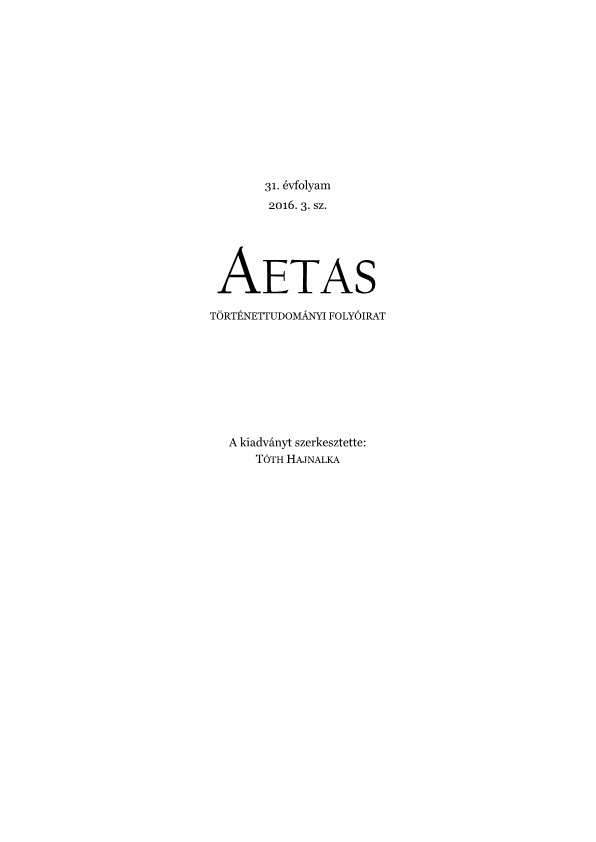Zülfikár aga portai főtolmács
Grand dragoman Zülfikar Aga
Author(s): Gábor KármánSubject(s): 17th Century
Published by: AETAS Könyv- és Lapkiadó Egyesület
Summary/Abstract: The paper is an attempt to highlight the most important facets of the extraordinarily long career of Zülfikar aga, a Hungarian renegade who was serving the Sublime Porte as a court interpreter for more than fifty years in the seventeenth century. Born around 1578, Zülfikar's first translation activities are documented from the peace negotiations at Zsitvatorok (1606) and he seems to have been living in Constantinople from 1608 on continuously, with the exception of some shorter diplomatic journeys until the early 1630s. He is first mentioned as grand dragoman in 1629, a post he held (in spite of not mastering any other language than Hungarian and Ottoman Turkish) until 1657. As the translator of all letters coming from beyond the northwestern borders of the Ottoman Empire, but also as a trusted counselor to successive grand viziers, he was an influential player of politics at the Sublime Porte – an influence he was ready to bring to the market. The most important strings connected him to the Transylvanian embassy (from where he received regular salary), but he also mediated the interests of the voivodes of Wallachia and Moldavia, as well as the governors of the empire’s border provinces for payment. Another source of income was his job as an information broker: in exchange for rewards, from the 1640s on he regularly informed the Habsburg embassy about any important news he had read in the incoming correspondence; and from the 1650s we have evidence of similar services to Muscovy (with the mediation of Constantinople Greeks). The last section of the study is a discussion whether Metin Kunt’s thesis about an ethnic solidarity in the Ottoman elite can be applied to the case of Zülfikar. It was beyond doubt the Transylvanian contacts that were the most useful for the dragoman when building his career. Nevertheless, the multiple loyalties he had during his long career and especially his dubious activities in cases of political crisis suggest that the dragoman was motivated by pragmatic reasons rather than ethnic solidarity–something he was ready to give up when the situation changed. From the Transylvanian side, the diplomats emphasized in their letters a lack of solidarity with Zülfikar on an ethnic basis by never referring to him as Hungarian, but rather always highlighting his “Turkish nature”.
Journal: AETAS - Történettudományi folyóirat
- Issue Year: 2016
- Issue No: 3
- Page Range: 54-76
- Page Count: 23
- Language: Hungarian

